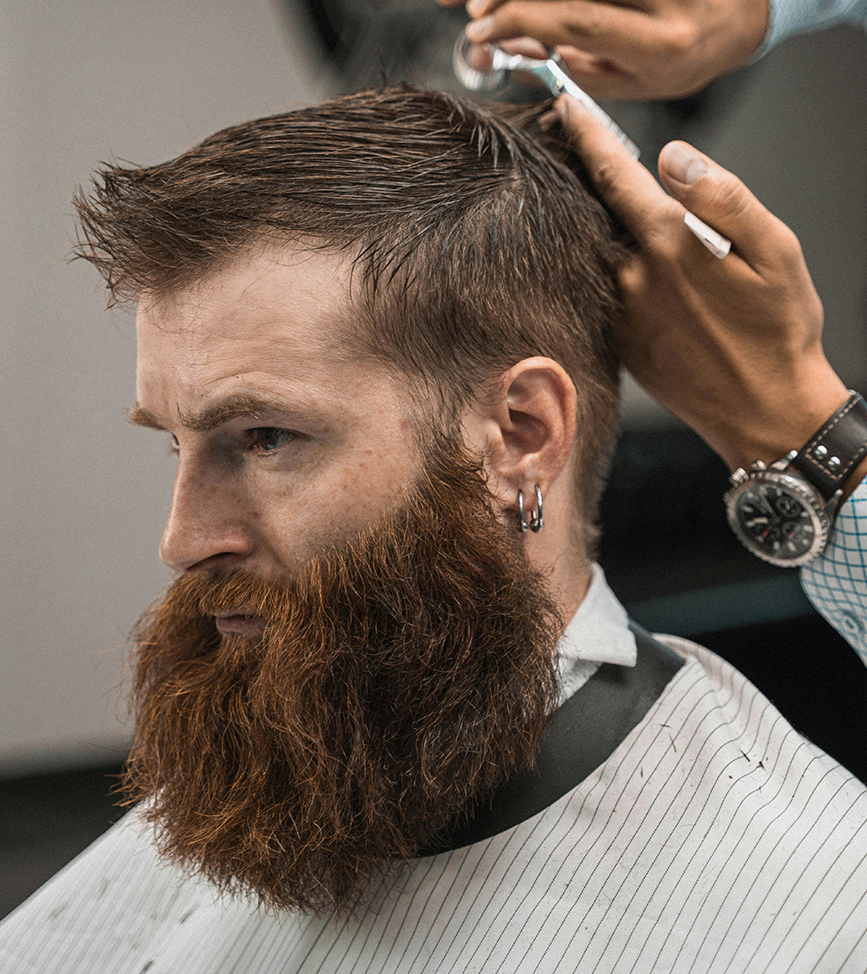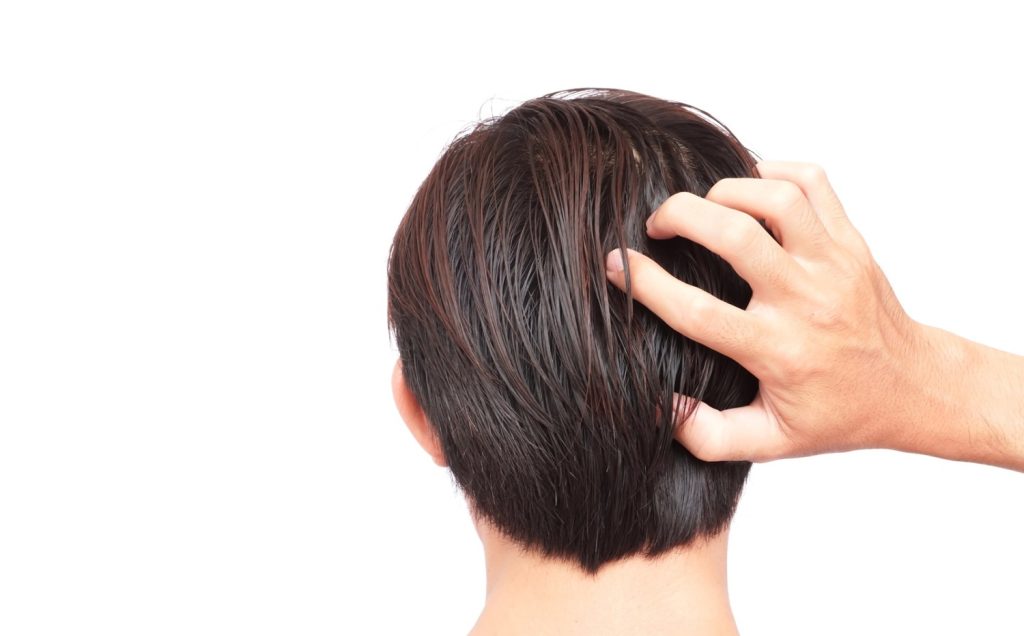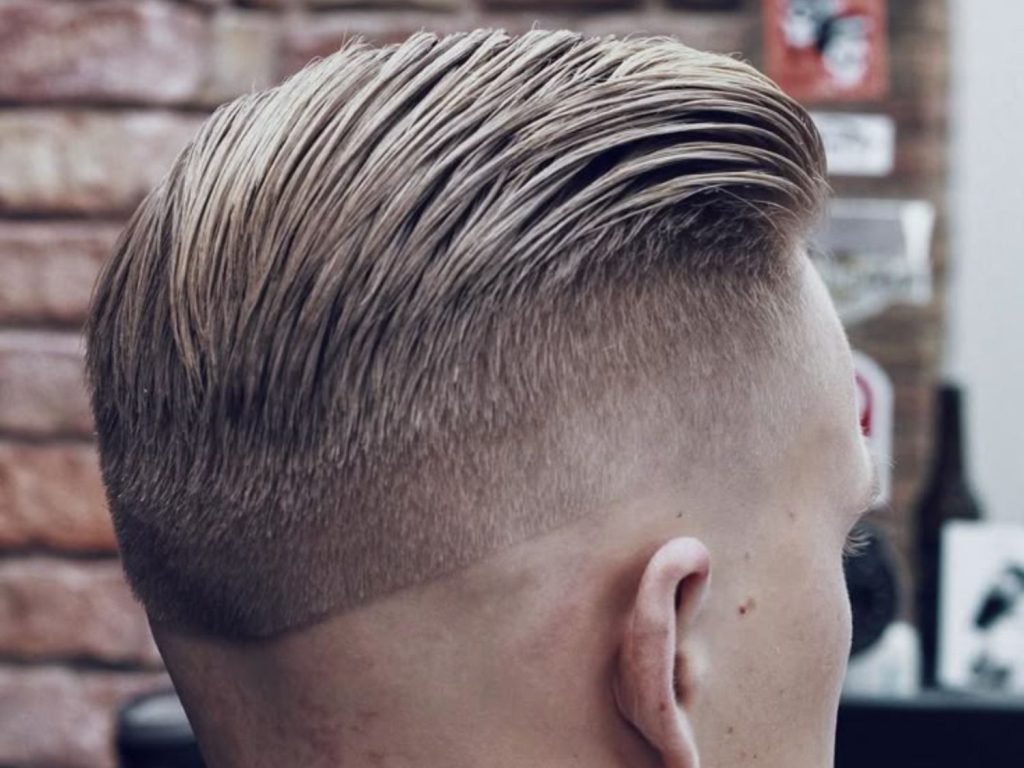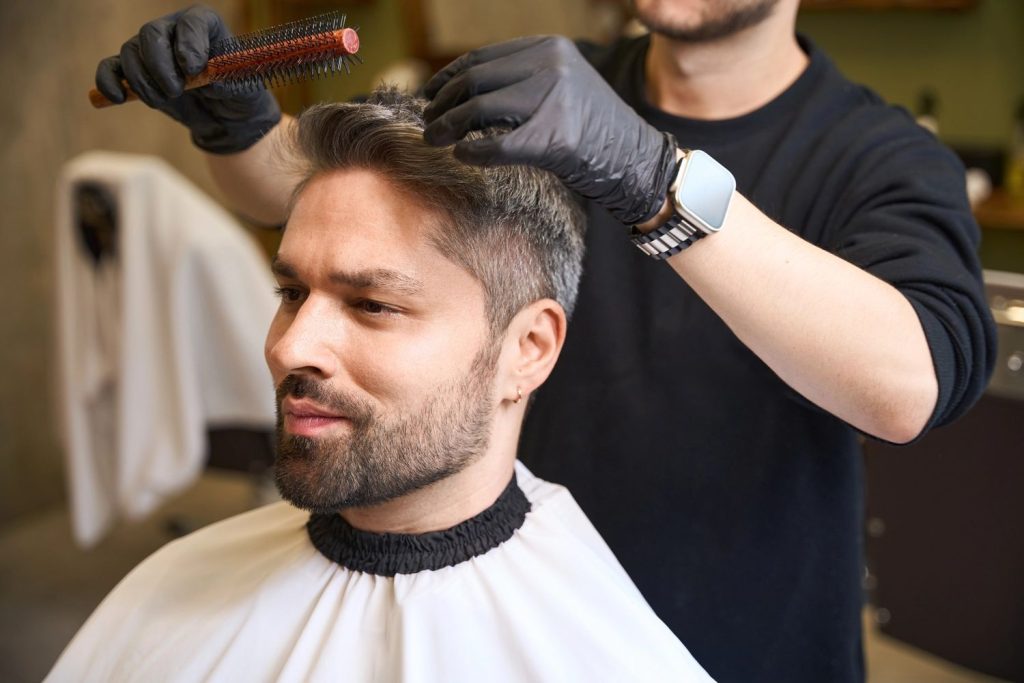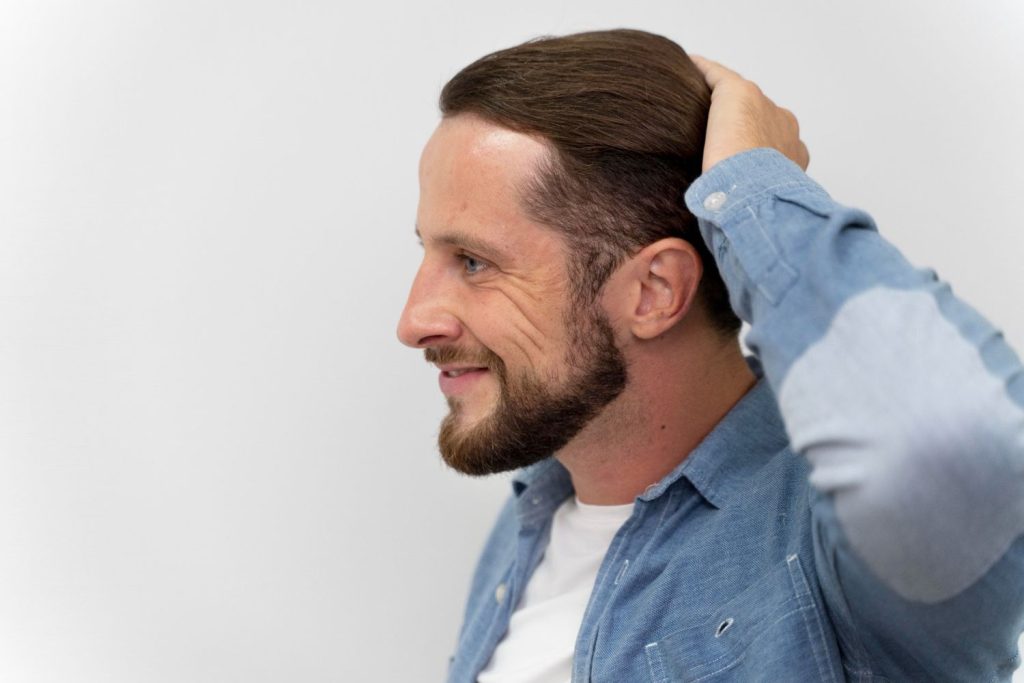Can Hormone Replacement Help Hair Loss?
July 23, 2025
Hair loss is a common and often emotionally distressing issue that affects people of all ages and genders. It can appear gradually or suddenly and may be triggered by various factors such as genetics, aging, nutritional deficiencies, medical conditions, or medications. One major, yet frequently overlooked, cause of hair thinning and shedding is hormonal imbalance.Hormones are responsible for regulating a wide range of biological functions in the body, and this includes hair growth. When hormone levels fluctuate—such as during menopause, andropause, thyroid disorders, pregnancy, or certain chronic health conditions—it can disrupt the natural hair growth cycle. This hormonal disturbance can lead to excessive shedding, thinning hair, and even noticeable bald patches in some cases.
For individuals whose hair loss stems from a hormone-related issue, hormone replacement therapy (HRT) may offer relief. By restoring hormone levels to a healthy range, HRT may help the hair growth cycle return to normal, potentially improving hair density, strength, and quality over time.However, it’s important to understand that hormone replacement is not a universal solution. It is most effective when tailored to the individual’s unique hormonal profile and combined with other supportive treatments when necessary. In this blog post, we’ll take a closer look at how hormone replacement works, what types of hair loss it may help with, and who is most likely to benefit from it.
Understanding the Link Between Hormones and Hair Loss
Hair loss caused by hormonal imbalance often presents differently from hereditary baldness. Rather than appearing in distinct patterns, it tends to show up as diffuse thinning, overall hair weakening, or excess shedding.
How Hormones Affect the Hair Growth Cycle
Hair grows in a repeating cycle:
- Anagen (growth phase): Lasts 2–7 years.
- Catagen (transition phase): A brief phase where growth stops.
- Telogen (resting/shedding phase): Lasts 2–4 months before a new hair begins to grow.
Hormonal disruptions can:
- Shorten the anagen phase, reducing the time hair stays in the growth stage.
- Increase the percentage of hairs in the telogen phase, leading to more hair falling out.
- Shrink hair follicles over time, resulting in finer, weaker strands.
Hormones Most Commonly Linked to Hair Loss
- DHT (Dihydrotestosterone): A potent form of testosterone that can shrink scalp hair follicles, especially in men.
- Estrogen: Helps keep hair in the growth phase longer. A drop in estrogen, like during menopause, can accelerate hair loss in women.
- Progesterone: Balances the effects of androgens; low levels can allow DHT to dominate.
- Thyroid hormones (T3 & T4): Control metabolism and hair follicle function. Imbalances can cause thinning or brittle hair.
How Hormone Replacement Therapy Works
Hormone replacement therapy involves the supplementation of naturally occurring hormones to restore balance and reduce symptoms related to their decline. It’s often used for treating menopause, low testosterone, or thyroid dysfunction.
HRT can be administered in different forms:
- Pills
- Patches
- Creams and gels
- Injections
- Pellets (implanted under the skin)
These hormones are either bioidentical (chemically identical to those made in the human body) or synthetic. Depending on the patient’s condition, the treatment may include one or more hormones, and sometimes medications to suppress or block specific hormonal actions.
When hormone levels return to a healthy range, the hair growth cycle may normalize, leading to stronger, fuller hair.
HRT for Women’s Hair Loss
Hair thinning in women is most common during:
- Perimenopause and menopause
- Post-pregnancy (postpartum)
- Polycystic ovary syndrome (PCOS)
- Severe stress or crash dieting
The Role of Estrogen in Hair Growth
Estrogen supports hair follicle health by:
- Lengthening the anagen phase, so hair grows longer and thicker.
- Improving scalp circulation, delivering oxygen and nutrients to follicles.
- Balancing androgens that can cause miniaturization of hair follicles.
When estrogen levels fall, like during menopause, many women notice that their hair becomes thinner, more brittle, and grows more slowly. Estrogen-based HRT may help slow this process and support regrowth.
How Progesterone Helps
Progesterone is often included in HRT to counteract the effect of estrogen on the uterus, but it also has anti-androgenic properties. This means it can reduce the activity of DHT, especially in women with PCOS or hormonal acne, where excess androgens are a problem.
Additionally, women with PCOS may also benefit from anti-androgen medications like spironolactone, which blocks the impact of testosterone and DHT on hair follicles. These are sometimes prescribed alongside HRT.
HRT for Men’s Hair Loss
Men typically experience androgenetic alopecia, or male pattern baldness, due to the effects of DHT on genetically sensitive hair follicles. But low testosterone levels can also lead to general thinning and slow hair growth.
Testosterone Replacement Therapy (TRT)
For men with low testosterone, TRT can improve:
- Energy and mood
- Muscle mass
- Libido
- Body hair growth
However, the scalp is a different story. Increased testosterone may raise DHT levels, which can worsen scalp hair loss if not managed carefully.
That’s why TRT is often paired with:
- Finasteride or dutasteride, which inhibit the conversion of testosterone to DHT.
- Regular monitoring of hormone levels and hair health.
- Scalp-specific treatments like minoxidil to support follicles topically.
In some cases, doctors might consider low-dose DHT blockers even for men not on TRT if hair loss is progressing quickly.
Thyroid Hormone Replacement and Hair Loss
The thyroid controls how fast your body uses energy, and hair cells are among the fastest-growing in the body. When thyroid levels are off, so is hair growth.
Hypothyroidism and Hair Thinning
An underactive thyroid slows metabolism, leading to:
- Thinning across the scalp
- Dry, coarse hair
- Eyebrow thinning (especially outer edges)
- Increased hair shedding
Thyroid hormone replacement (typically levothyroxine) can help regulate the metabolic rate and stimulate follicles to re-enter the growth phase. However, results may take 3–6 months to become visible, and adjusting dosage takes time.
Hyperthyroidism and Hair Loss
Too much thyroid hormone can also lead to:
- Hair thinning
- Fragile hair texture
- Premature shedding
Treatment involves medications to reduce thyroid hormone production, which can help hair health return to normal once balance is restored.
Hormone Replacement Therapy: Benefits and Limitations
Benefits
- Targets the root cause of hormonally-driven hair loss.
- Improves overall health, mood, and energy levels.
- May enhance hair density and quality, especially when paired with supportive treatments.
- Helps manage symptoms beyond hair loss—hot flashes, fatigue, depression, low libido.
Limitations and Considerations
- Results aren’t guaranteed—especially if hair loss is genetic or advanced.
- HRT is not suitable for everyone. Contraindications include a history of certain cancers, blood clots, or cardiovascular disease.
- Side effects may include:
- Bloating or breast tenderness (in women)
- Mood changes
- Acne or oily skin
- Prostate issues (in men)
- Bloating or breast tenderness (in women)
- Requires ongoing medical supervision and regular hormone testing to ensure safe and effective treatment.
Who Should Consider Hormone Replacement for Hair Loss?
You may be a good candidate for HRT if:
- You’ve noticed hair loss accompanied by other signs of hormone imbalance.
- Blood tests confirm low levels of key hormones.
- You’ve already ruled out other causes like iron deficiency, stress, or medications.
- You’re open to long-term medical management.
Consulting a healthcare provider—preferably an endocrinologist or hormone specialist—is the best way to determine if HRT is appropriate. They may also coordinate with a dermatologist or trichologist for scalp evaluations.
Complementary Treatments and Alternatives
HRT can be part of a comprehensive hair restoration plan. Other options include:
- Topical minoxidil: FDA-approved for men and women. Increases follicle activity.
- DHT-blockers: Taken orally or applied topically to reduce hormone-triggered hair loss.
- Microneedling: Stimulates scalp circulation and enhances absorption of serums.
- PRP therapy: Uses growth factors from your own blood to encourage regrowth.
- Lifestyle support:
- Eat a balanced diet rich in iron, protein, biotin, and zinc.
- Reduce chronic stress, which can disrupt hormonal balance.
- Maintain regular sleep and hydration.
- These strategies can enhance the results of HRT or serve as stand-alone treatments for those not eligible for hormone therapy.
- Eat a balanced diet rich in iron, protein, biotin, and zinc.
Number One Barber Shop Serving the Pmsi Dove Country Community and Beyond in Stafford
Number One Barber Shop is dedicated to serving the diverse needs of the local community of Stafford, including individuals residing in neighborhoods like Pmsi Dove Country. With its convenient location near landmarks such as the Body of Faith and major intersections like Stafford Run Rd. & Murphy Rd. (coordinates: 29.61099167337901, -95.5617842569358), we offer men’s toupe Stafford services.
Get Men’s Toupee Stafford Services at Pmsi Dove Country Now
Navigate from Pmsi Dove Country to Number One Barber Shop Now
Final Thoughts
Hormone replacement therapy can be a valuable tool in managing hair loss caused by hormonal imbalances. It works best when prescribed based on individual needs and verified lab results. While not a miracle cure, HRT can improve hair quality and reduce shedding when used correctly and consistently. Before starting any hormone treatment, speak with a medical professional to understand the risks, benefits, and whether this approach is right for you. A combined approach that addresses lifestyle, nutrition, and scalp health often yields the best results.
Frequently Asked Questions
1. Can hormone replacement therapy fully regrow lost hair?
It can help when hair loss is hormone-related, but it’s unlikely to restore hair lost due to genetics or long-term follicle damage.
2. Is HRT more effective for men or women with hair loss?
Effectiveness depends on the cause. Women with menopause-related hair loss may respond well to estrogen-based HRT, while men with low testosterone need more targeted therapy to avoid DHT-related issues.
3. What kind of doctor should I see about hormone-related hair loss?
Start with your primary care provider or an endocrinologist. You may also work with a dermatologist or trichologist for scalp-specific evaluations.
4. How soon can I expect hair regrowth after starting HRT?
Changes usually begin after 3 months, with more noticeable improvement around 6 months. Results vary by individual.
5. Can I combine HRT with other hair loss treatments?
Yes. Combining HRT with topical treatments, lifestyle adjustments, and nutritional support often leads to better results.
Refine Your Style with Expert Barbershop Care
Our expert barbers are dedicated to providing you with a personalized experience that brings out your best look, every time. Whether you're in for a sharp haircut, a refreshing shave, or a relaxing facial, we take the time to understand your style and tailor our services to match your unique preferences.


